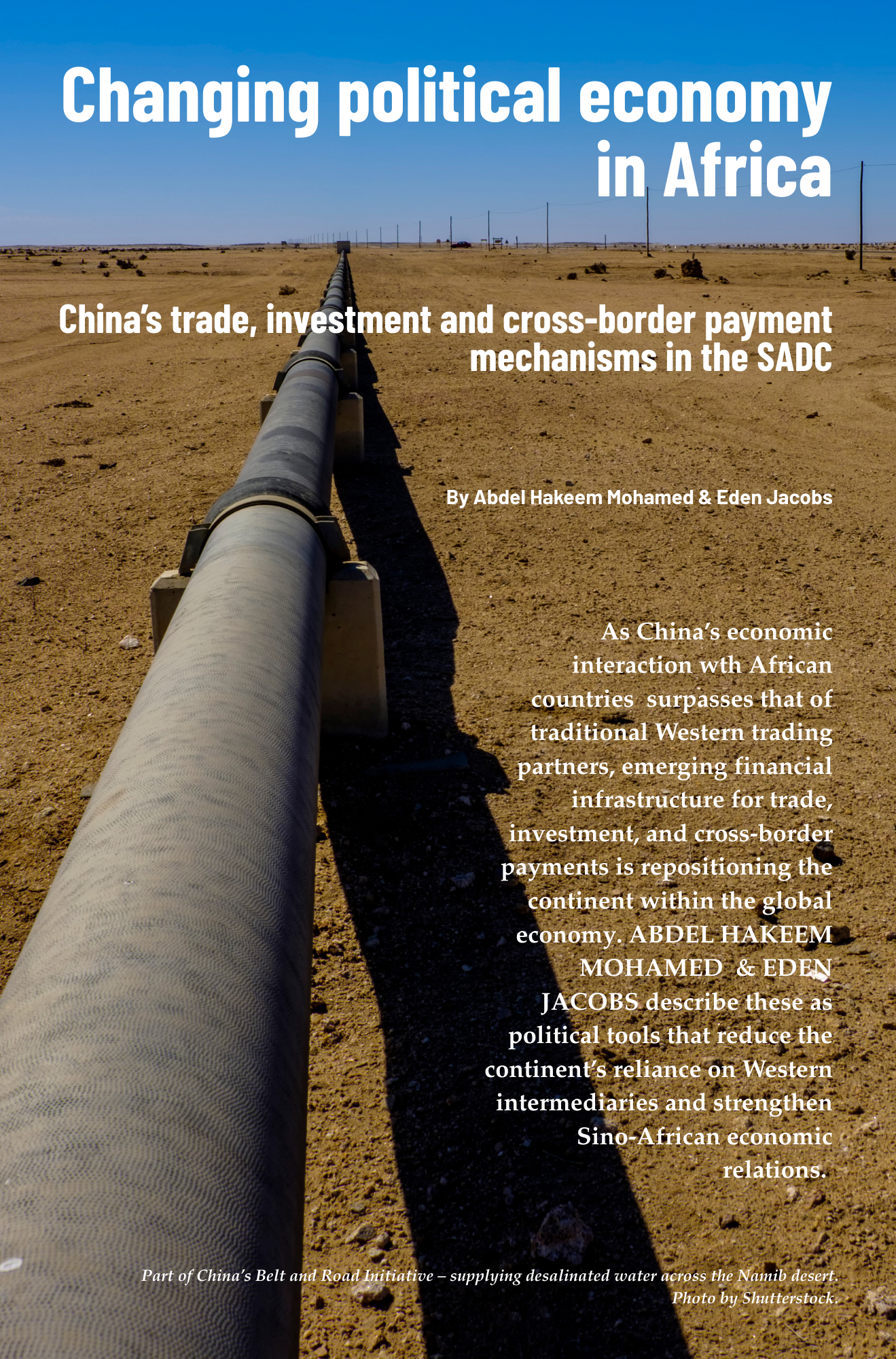Changing political economy in Africa China’s trade, investment and cross-border payment mechanisms in the SADC
Main Article Content
Abstract
This article explores the changing political economy of Africa through a focused analysis of China’s trade, investment, and cross-border payment mechanisms in the Southern African Development Community (SADC) region. Over the past two decades, China has surpassed traditional Western partners such as the United States in trade volume and foreign direct investment flows − in terms of jobs and capital invested − across Africa. China has played a significant role in Africa’s development, however concerns persist about the motives driving its engagement on the continent. These concerns have sparked debates around neo-colonialism, raising the question of whether China’s involvement will ultimately hinder Africa’s progress or contribute to its sustainable development. The SADC region provides an ideal case for investigating these dynamics due to its institutional maturity, regional integration efforts, and the pivotal role played by South Africa.
In this article we examine how mechanisms like the Pan-African Payment and Settlement System and the SADC Real-Time Gross Settlement System are shaping regional financial architecture and facilitating Sino-African economic relations. The analysis further interrogates the ongoing geopolitical tensions and the introduction of digital currencies such as China’s e-CNY.
The study concludes that while China’s growing footprint offers opportunities for development and trade diversification, African states must strengthen regulatory frameworks and strategic capacity to derive mutual benefit and safeguard national interests. This article argues that regional payment systems and trade agreements under the African Continental Free Trade Area (AfCFTA) agreement will be central in repositioning Africa within a multipolar global economy.
Downloads
Metrics
Article Details

This work is licensed under a Creative Commons Attribution-NoDerivatives 4.0 International License.

